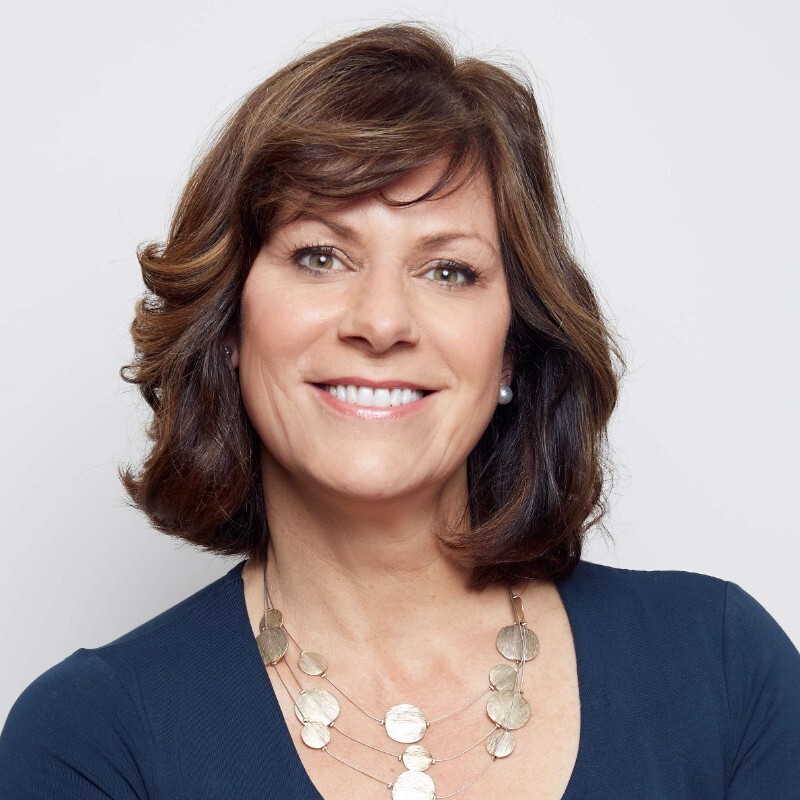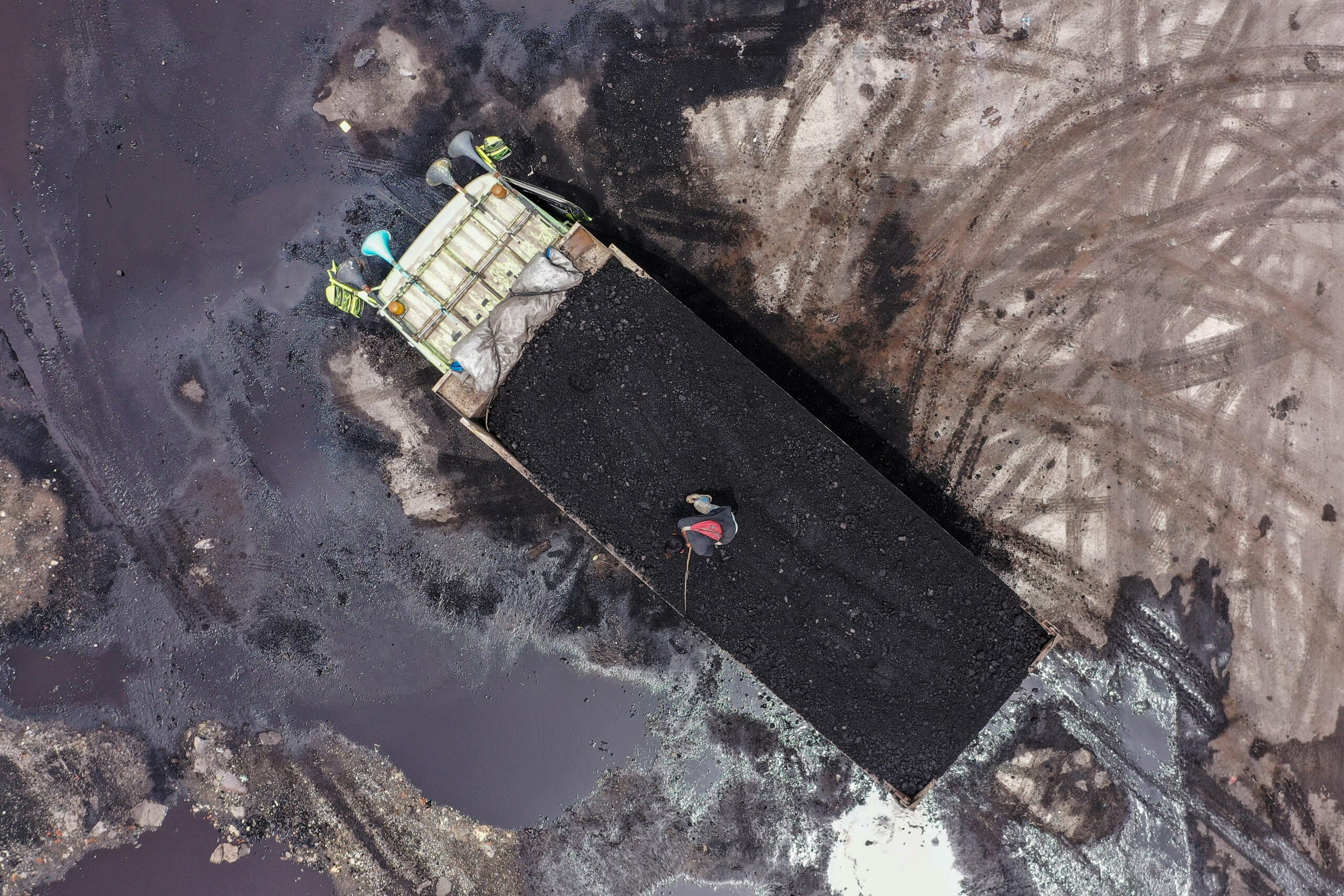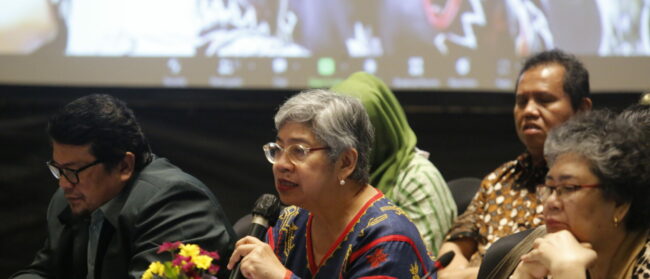Claire Perry O’Neill was fresh-faced from the gym as she dialled in from her Singapore hotel room.
It was early in the morning in the high-fuelled atmosphere of Ecosperity Week, a three-day conference hosted in the Lion City from 6-8 June inviting business leaders, policy-makers and investors to track the path to Asia’s transition to a “net zero” carbon output.
On the tail end of record-breaking heat waves across Southeast Asia, such an event could leave room for cynicism. But Perry O’Neill, former U.K. energy minister and current managing director for climate and energy at the World Business Council for Sustainable Development, a global organisation of 200 businesses, sees plenty of reason for hope.

“I’m very optimistic,” she said. “The climate numbers are difficult. We’re dealing with record heat levels, which is a wake up call. But we’re up for the challenge. And I find that very, very energising.”
A long-time booster for energy transition policy, Perry O’Neil served as a minister in the Conservative-led government from 2017-2019. In that role, she made some milestones while pushing forward the U.K.’s ground-breaking net zero legislation and successful bid to host the UN Climate Change Conference (COP26) in 2021.
But now, following an abrupt split from the government at the start of the year – claiming the ruling Conservative party was dominated by “ideology and self-obsession” – Perry O’Neill is back to business.
Amidst the heat of a rising climate crisis paired with growing public scrutiny of corporate ‘greenwashing’, the private sector will likely need to do more to substantiate claims of environmental friendliness. Now, both with the council and as an advisor to Terrascope, a Singapore-based decarbonisation platform, Perry O’Neill aims to provide better tools to accurately monitor emissions along value chains. The goal is to help companies meet evolving reporting requirements while pushing investment to be more effectively climate-conscious.
“The slight tragedy of it is that the global climate community thinks businesses are the bad guys. There is a view that growth is bad business,” she observed. “[It’s] so much better to have public-private cooperation and really unleash business and have it do what is good.”
We still had a view that this was all highly negative and costly. And it is costly. But there was no conversation about the opportunity and the growth.”
Claire Perry O’Neill
Business is Perry O’Neill’s background, as her political career was preceded by 20 years in consulting and finance.
It wasn’t until a professional pause that the Oxford University geography graduate considered the increasingly ominous climate crisis as a core part of her career.
“It was the first spike in climate interest,” she recalled, describing the mid-2000s. “It was when Al Gore’s movie came out, there was that feeling of quick climate chaos.”
A policy role led to her becoming a member of parliament in the then-opposition Conservative party, and eventually a part of former Prime Minister Theresa May’s cabinet.
“It was just after the Paris Agreement of 2016-17, so we had this kind of shared narrative,” she said. “But we still had a view that this was all highly negative and costly. And it is costly. But there was no conversation about the opportunity and the growth and the fact that if we are going to do this, there are ways to do it fair and equitable – and also profitable.”
Now, more than half a decade later, Perry O’Neill is attempting to tackle these conversations from the other side of the public-private divide.
One example she points to is the buildings that make up tightly-packed cityscapes that make up regional metropolitan areas such as Singapore, Kuala Lumpur and Jakarta. Buildings account for around 40% of finite energy consumption in Southeast Asia. But as Perry points out, “we pass policies all the time that say we have to have more energy efficient buildings. [But] it’s really difficult to do on the ground.”
Transitioning 80% of Singapore’s buildings to ‘green buildings’ meeting certain environmental standards such as reduction in energy, water and material resource usage, is a key part of the government Building Construction Authority’s Green Building Masterplan.
But according to a report by energy management system company Schneider Electric and the Singapore Green Building Council (SGBC), 60% of 500 Singapore-based firms surveyed weren’t familiar with the concept of green buildings, and only 12% indicated that all their operations used them.
“There is a sense of urgency that needs to happen, because these are really long tail decisions.”
Claire Perry O’Neill
A key challenge contributing to this disconnect is lack of transparency and data. During an Ecosperity panel, Lauren Sorkin, executive director of the Resilient Cities Network, estimated that investors could miss out on $7 trillion in benefits from nature-based climate solutions, such as planting mangroves in coastal areas, before the end of the decade due to lack of data.
It is this kind of data that Perry O’Neill believes is critical for the private sector to integrate energy transition as a realistic, attainable part of business continuity.
“If you can’t measure it, you can’t manage it,” she said. “What you need to do is have your CFO, your procurement head, make decisions every day that reduce your overall value chain emissions.”
Increased scrutiny of businesses’ carbon emissions can help tackle the opaqueness that facilitates corporate greenwashing. On the flip side, it also forces governments and businesses to consider the potential impact of a dramatic energy shift, especially for a region that remains heavily reliant on fossil fuels.
Against that entrenched reliance on carbon-based energy, there is no shortage of ambitious promises in the region.
Indonesia – a country that exported a record 448.5 million tonnes of coal in 2022 and generates more than 60% of its energy from the carbon fuel – has recently claimed it can reach net zero emissions by 2055, ahead of its target.

Some private-sector actors seem to be on board to ditch coal. At an Ecosperity session, Singaporean bank DBS – Southeast Asia’s largest lender by assets and a member of the Sustainable Business Council – announced plans to take funding for new coal plants out of its lending matrix.
But to turn statements into action, there needs to be investment and new technologies that require collaboration between states and businesses, across industries and borders.
Such coordination will inevitably take time to come together. Perry O’Neill is clear in her view that “everyone needs to get off coal” but showed some wariness of the pace of change.
“There is a sense of urgency that needs to happen, because these are really long tail decisions,” she said.
China, despite its pledge to be carbon neutral by 2060, has approved more coal power projects in the first three months of 2023 than all of 2021, a move Perry O’Neil noted will doubtless influence Southeast Asia.
At an Ecosperity fireside chat, Singapore Minister for Development Desmond Lee noted the need to be “realists with a quiet sense of optimism”. Perry O’Neill liked this combination.
“I’m not for chaos,” she asserted. “I’m for order and transparency. But I’m also fed up being told why we can’t do things. I think that is a very dangerous mindset.


